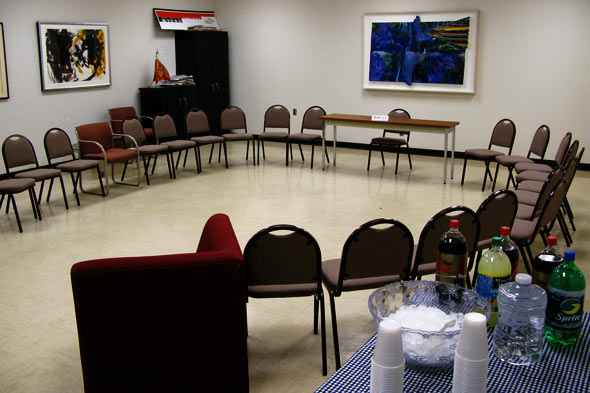In Recovery Remember “MY WAY IS THE GET HIGH WAY!!!”

Thus we grow. And so can you, though you be but one man with this book in your hand. We believe and hope it contains all you will need to begin. (Alcoholics Anonymous pgs. 162 – 163)
You may be just one man or one woman with this book, but that is at least enough to begin. The reason that is the case is because all things Twelve Step have their beginnings in the Alcoholics Anonymous book.
It will probably require the help of others who know what is in the book to really get beyond just beginning.
The key to all of this is the Alcoholics Anonymous book. The writers of the book intended it to have all the information needed to do whatever it took for them to get the miracle of recovery that was supposed to be impossible for them.
Those of us who live in large cities are overcome by the reflection that close by hundreds are dropping into oblivion every day. Many could recover if they had the opportunity we have enjoyed. How then shall we present that which has been so freely given us?
We have concluded to publish an anonymous volume setting forth the problem as we see it. We shall bring to the task our combined experience and knowledge. This should suggest a useful program for anyone concerned with a drinking problem. (Alcoholics Anonymous pg. 19)
To show other alcoholics PRECISELY HOW WE HAVE RECOVERED is the main purpose of this book. For them, we hope these pages will prove so convincing that no further authentication will be necessary. (Alcoholics Anonymous – Forward to the First Edition)
Let me get take a slight detour then get to the real point here:
One of the biggest problems that these writers thought we have is the need to have things our own way.
Whatever our protestations, are not most of us concerned with ourselves, our resentments, or our self-pity?
Selfishness – self-centeredness! That, we think, is the root of our troubles. (Alcoholics Anonymous pg. 62)
People who are at the worst level of alcoholism/addiction like to do things their own way in spite of what others around them tell them to do. That is one of the major aspects of our sickness. We do crazy stuff that causes all sorts of problems simply because we want to and in spite of what anybody says, proves and even in spite of past terrible results.
This brings us to why there was the need for a book in the first place. There was a need for a standard of information that showed the course for recovery instead of letting people just do whatever they thought would work. Most people who are starting recovery have already tried a few of their own ideas and failed miserably and that is exactly why he or she is in recovery to begin with.
Here are some of the methods we have tried: Drinking beer only, limiting the number of drinks, never drinking alone, never drinking in the morning, drinking only at home, never having it in the house, never drinking during business hours, drinking only at parties, switching from scotch to brandy, drinking only natural wines, agreeing to resign if ever drunk on the job, taking a trip, not taking a trip, swearing off forever (with and without a solemn oath), taking more physical exercise, reading inspirational books, going to health farms and sanitariums, accepting voluntary commitment to asylums – we could increase the list ad infinitum. (Alcoholics Anonymous pg. 31)
I mention this to clarify the idea that recovery is strongly based on not doing what we want to do or what we think is right but that it hinges on being so desperate to get better that we are willing to do things that we absolutely do not want to do or that we find terribly uncomfortable.
Keeping all of that in mind; I finally get to my point. People in recovery are by nature drawn to cutting corners and doing things incorrectly to keep themselves from being uncomfortable.
If we go through recovery just listening to this person’s and that person’s ideas and concepts of recovery we each will find what we believe is the best way by picking the parts of what each person tells us that we are each most comfortable with. In other words we will use the commentary of others in recovery to search out our own ways to cut corners and do things incorrectly to keep ourselves comfortable.
At some of these we balked. We thought we could find an easier, softer way. But we could not. With all the earnestness at our command, we beg of you to be fearless and thorough from the very start. Some of us have tried to hold on to our old ideas and the result was nil until we let go absolutely. (Alcoholics Anonymous pg. 58)
The fact that people in recovery are usually looking for “easier” ways is not the exception to the rule, it is the rule and must be the rule for getting recovery advice from other individuals.
The only concept that could be used to combat such a universal problem is to come up with a standard of information that could be used both guide a person through recovery and to judge if the information one is getting in recovery is correct or not. There has to be a standard of information that is both the source and measure of all related information.
That is precisely why the alcoholics book was written and why it is a must for all persons pursuing Twelve Step recovery of any kind.
I am regularly astonished by the number of people who I encounter who are either brought to my attention as experts or are self-proclaimed experts that know very little about what is in the Alcoholics Anonymous book.
Many A.A. meetings I have been to have been have been filled with people who are either empty handed or who have brand new, pristine copies of the Alcoholics Anonymous book on their lap (which means they own it, but have never read it).
Often there are one or two people with well worn books who are sitting in these same rooms shaking their heads or rolling their eyes at some of the things people are saying, but politely trying to be supportive of whoever because at least he or she is there and trying.
All of us need to stop it and get back to whatever the standard is supposed to be. Owning an Alcoholics Anonymous book is not enough; we need to read it and learn it (and pass what is in it on to others). We cannot grow in environments where everyone is creating his or her own “softer, easier way” of recovery and expect anything but foolishness.
Let me share a word of warning before you go on however. IN THE LAND OF THE INSANE THE SANE PERSON LOOKS LIKE THE IDIOT!!!!
If you begin to learn what the Alcoholics Anonymous book actually says recovery is, do not suddenly become this angry crusader for truth yelling out page numbers over speakers at meetings. The truth is that many you encounter will not want anything to do with what you have to say simply because it challenges the softer easier path they are on no matter how nice or how rudely you express it to them.
Just share the facts and those who truly are desperate to follow the path that is actually laid out will seek more and will get what they are supposed to be getting. Those that do not care to hear it may be on the path to failure. The bottom line is it is either the Twelve Steps as outlined in the Alcoholics Anonymous book or it is not. Doing whatever you want because it is comfortable to you is not.
Rarely have we seen a person fail who has thoroughly followed our path. Those who do not recover are people who cannot or will not completely give themselves to this simple program, usually men and women who are constitutionally incapable of being honest with themselves. (Alcoholics Anonymous pg. 58)
Many of us live by the rule “It’s my way or the highway” which means things either go the way I want or something is wrong and has to go. I am proposing almost the dead opposite. Just think of this small statement as the bottom line: MY WAY IS THE GET HIGH WAY!!!
Stay sober my friends,
Wade H.
Related articles
- Normal Drinkers (themiracleisaroundthecorner.wordpress.com)








